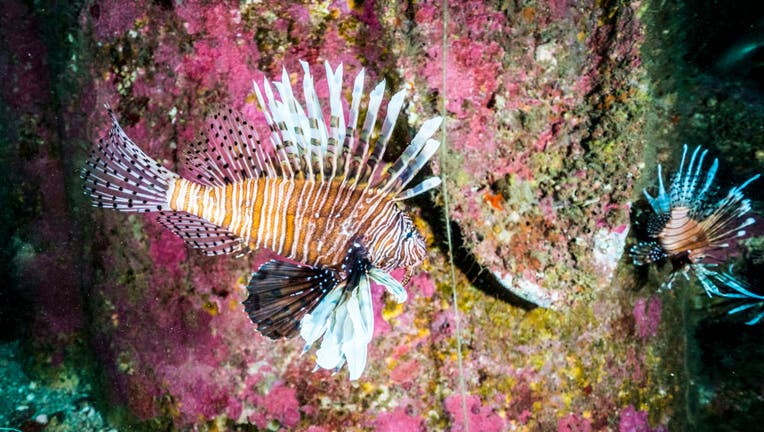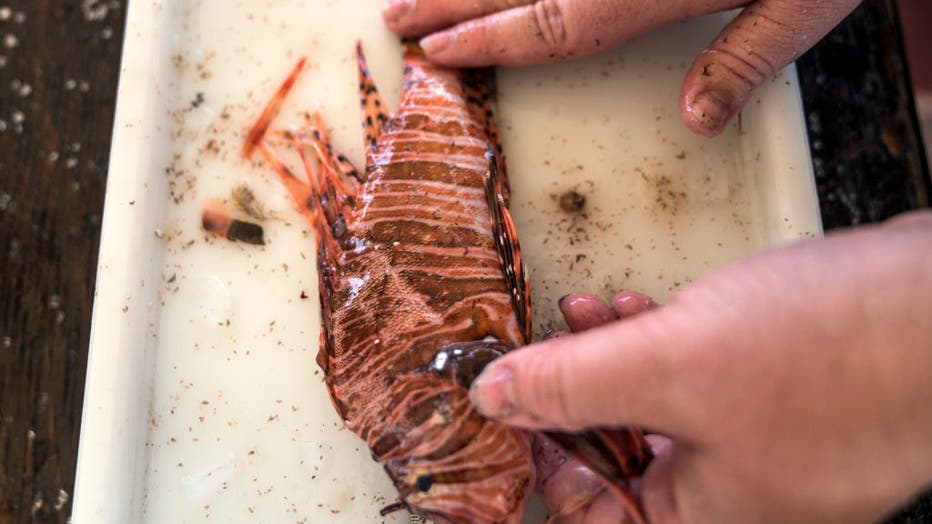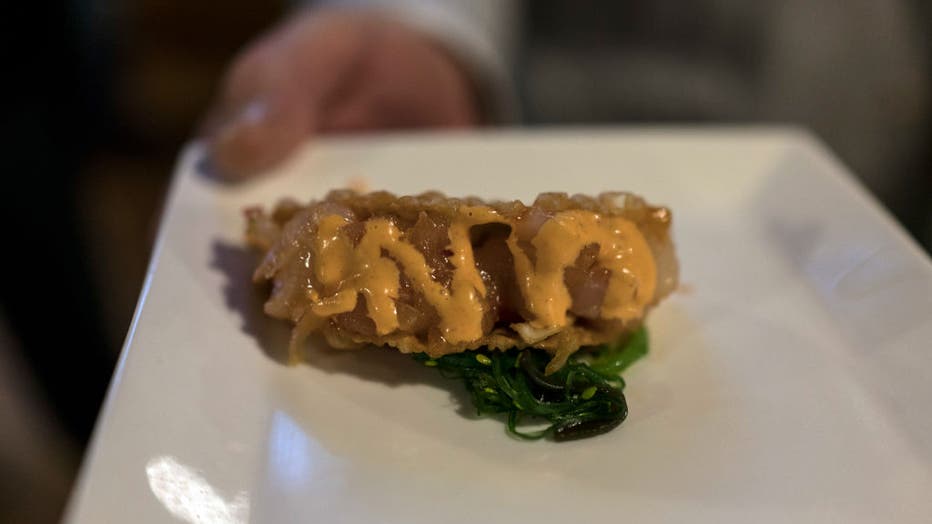Saving the planet by eating one venomous lionfish at a time

PENSACOLA, FL - MAY 22: Divers and chefs take part in the 2017 Lionfish World Championship, where they must spear the most lionfish in order to win in Pensacola, FL on May 22, 2017. (Photo by Benjamin Lowy/Getty Images)
ORLANDO, Fla. - For decades, lionfish have been wreaking havoc along the Atlantic and Gulf coasts by preying on native species.
To help fight the onslaught of lionfish, the predator has been turned into the prey, as humans are consuming lionfish to help reduce their numbers.
What is a lionfish?
Lionfish are a venomous, predatory species that usually grow to about 12 to 15 inches in length, according to the Florida Fish and Wildlife Conservation Commission (FWC).
They originated from the tropical waters of the Indo-Pacific and Indian Oceans but have gradually made their way into the Western Hemisphere.
The invasive species was first reported along Florida coasts in the mid-1980s, according to NOAA.
NOAA said the lionfish’s introduction to Atlantic waters may have been aided by humans, who had been releasing pet lionfish from their home aquariums.

PENSACOLA, FL - MAY 21: Divers and chefs take part in the 2017 Lionfish World Championship, where they must spear the most lionfish in order to win in Pensacola, FL on May 21, 2017. (Photo by Benjamin Lowy/Getty Images)
For the past few decades, lionfish have flourished throughout the coastal waters of the Southeast U.S. and Caribbean, competing with small crustaceans, snapper, grouper and other native fish species for food and space.
Additionally, the non-native lionfish have very few predators in the North American marine ecosystems, so their numbers have grown without much to keep them in check.
According to NOAA, the invasive lionfish populations will keep growing and will not be eliminated using conventional methods.
One terrestrial predator, though, has taken up the mantle to fight the lionfish – with a fork.
Consuming the enemy
To help reduce lionfish numbers, a number of organizations have encouraged the hunting and consumption of lionfish.
The lionfish can become "delectable seafood fare," NOAA said, as long as they are prepared properly.

PENSACOLA, FL - MAY 20: Divers and chefs take part in the 2017 Lionfish World Championship, where they must spear the most lionfish in order to win in Pensacola, FL on May 20, 2017. (Photo by Benjamin Lowy/Getty Images)

PENSACOLA, FL - MAY 20: Divers and chefs take part in the 2017 Lionfish World Championship, where they must spear the most lionfish in order to win in Pensacola, FL on May 20, 2017. (Photo by Benjamin Lowy/Getty Images)
The fish have 18 venomous spines that need to be carefully removed, if the fish are prepared for consumption.
Lionfish flesh is not poisonous or venomous, the FWC said.

PENSACOLA, FL - MAY 21: Divers and chefs take part in the 2017 Lionfish World Championship, where they must spear the most lionfish in order to win in Pensacola, FL on May 21, 2017. (Photo by Benjamin Lowy/Getty Images)

PENSACOLA, FL - MAY 21: Divers and chefs take part in the 2017 Lionfish World Championship, where they must spear the most lionfish in order to win in Pensacola, FL on May 21, 2017. (Photo by Benjamin Lowy/Getty Images)
By consuming the fish, NOAA scientists believe it can be a helpful way to mitigate the species’ impacts on reef communities.

